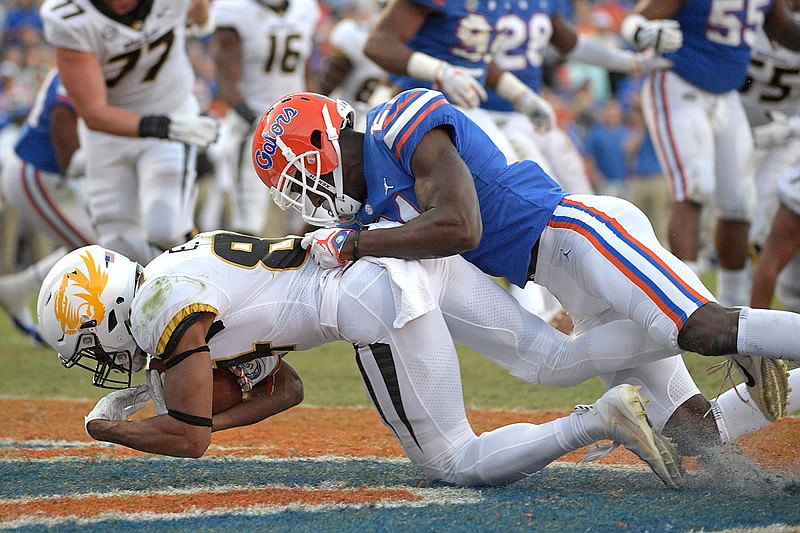COLUMBIA - The biggest compliment you could give Missouri coach Barry Odom after last week - one he would accept, anyway, since he's not publicly big on putting qualifiers around the word "win" like "first-ever road win against a ranked opponent" - is his team believes in him.
The Tigers showed that last Saturday with a 38-17 beatdown of Florida.
It would have been easy to fold after a demoralizing loss. Missouri did it the previous season, losing to Purdue at home after a bad home loss to South Carolina, and following that Purdue loss with a loss to Auburn. The Tigers couldn't find the end zone in the closing minutes at Kentucky, partly because of some rule-bending by Josh Allen, and couldn't hang with Georgia.
Last Saturday's game could have looked a lot like the Georgia game, in which Missouri was competitive for a half before fading. Instead, the Tigers out-played their opponent from start to finish.
What comes next is now of even more importance, starting at 11 a.m. today against Vanderbilt (4-5, 1-4 SEC) at Faurot Field. With their win at then-No. 13 Florida, the Tigers (5-4, 1-4 SEC) showed they really are perhaps the second-most talented team in the SEC East, and could have a record that reflects that idea if not for their inability to close out games. The game will be televised on SEC Network.
The Commodores are not dissimilar to Missouri: Inconsistency has plagued a team that lost to Notre Dame by five points on the road but also beat FCS opponent Tennessee State 31-27 at the end of September at home.
Missouri getting receiver Emanuel Hall back for the final month of its season is an important piece of the team's plan to end the regular season on a four-game win streak. Hall is such a threat deep, and his chemistry with Drew Lock so great, even when he's not catching passes - and he usually is - the threat of him doing so is a comfort to Lock and the offense and a nightmare to opposing defenses.
"He's an impact player," offensive coordinator Derek Dooley said. "I don't care what offense you have, when you take away a guy who can generate explosive plays the way he can and can stretch the defense vertically, it hurts you when he's not in there. It's not that we don't have other guys that can do it, but he's a senior, he's done it, he's been out there in big games, and it's good to have him back."
Hall has 22 receptions in four games (he played against Georgia while not fully healthy and did not record a reception) for a team-high 507 yards. His average per reception is 23 yards, and 10 of his 22 catches have gone for 25 or more yards. All but three of his catches have been first downs.
When you have a player who moves the chains 86 percent of the time he touches the ball, it's a good idea to get him the ball more. By comparison, of the three players that have more receptions for Missouri this season than Hall's 22, Albert Okwuegbunam (43), has his catches go for first downs 53 percent of the time, and Johnathon Johnson (35) and Jalen Knox (24) move the chains about 63 percent of the time.
The Tigers might not have to move the chains through the air against Vanderbilt, or at least they should be able to pick their spots. The Commodores are giving up 254 rushing yards per game against conference opponents, in the bottom-15 nationally, and at 5.6 yards per carry allowed are giving up about what Larry Rountree III has averages per carry this season, and worse than Damarea Crockett's 4.7 and Tyler Badie's 5.0.
If Missouri elects to go run-heavy today, the team has shown it can do that. The Tigers are running an average of four more times per game when compared to last season, and have topped out at 46 rushes three times this season, against Wyoming, Purdue and South Carolina.
And Dooley has seamlessly integrated his offensive philosophies when it comes to ball control. Missouri is averaging about 30 minutes and 30 seconds of possession per game, up five and a half minutes on average from 2017 and up more than seven minutes from 2016.
That possession time goes hand-in-hand with a rushing attack that has improved since last year being trusted to pick up necessary yardage, rather than throwing for it. The run game will be called upon to do just that against Vanderbilt.

